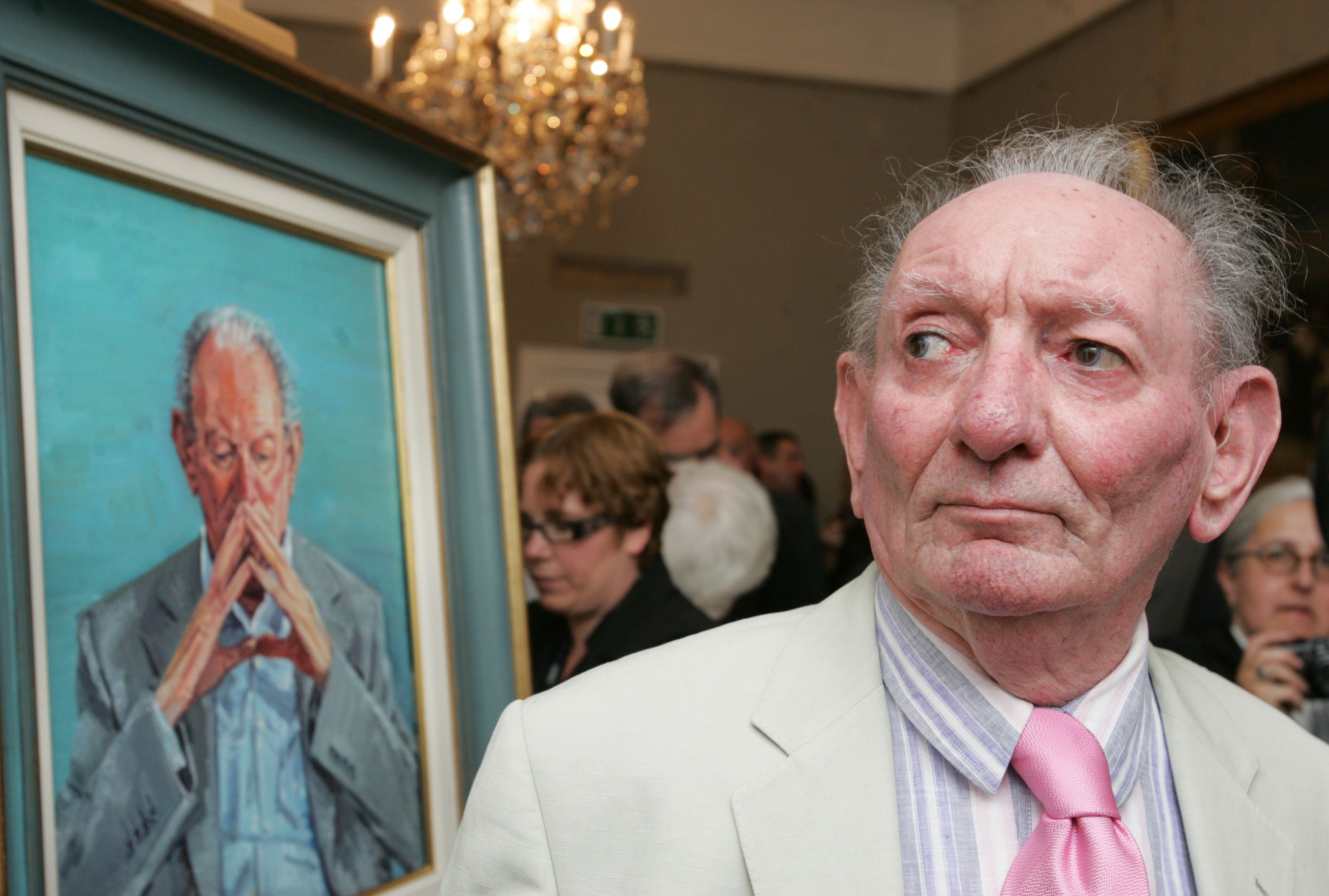This season the Irish Repertory Company is celebrating the work of the great Ulster dramatist Brian Friel. It has been staging, for instance, Friel’s works set in Ballybeg, a fictional town in Donegal: including “Aristocrats,” on currently through March 3, and from March 16 to May 5, “Philadelphia, Here I Come!”
Friel is one of the giants of Irish theater and perhaps the greatest Northern Irish dramatist ever. He had 24 plays published in a career of more than a half century, including many hit productions in London’s West End and on Broadway. Acclaimed for the clarity, economy and intensity of his language and his probing of public and private anxieties, New York Times critic Vincent Canby wrote of Friel, that he “dazzled us with plays that speak in a language of unequaled poetic beauty and intensity.”
Living at various times on either side of the Irish border, the playwright was, scholar Richard Pine said in a Guardian obituary, "preoccupied with aspects of dualism: divided loyalties, tensions between fathers and sons, the two languages and the island’s two political states." His work deftly portrays the great tensions in Irish drama; tradition and social change; loss and alienation; the search for faith and the yearning for transcendence; the power of the imagination and the attraction of escapism; the beauty of language and the weight of history.
Theater historian Christopher Murray wrote that Friel aimed to “take the spiritual pulse of the Irish people and find the dramatic form that will render the condition of universal interest.” Nobel Prize-winning poet Seamus Heaney wrote that Frielleft his audiences renewed, elated, and “with a sense of rightness, even though things have manifestly gone wrong for the people onstage.”
Born in 1929 near Omagh, Co. Tyrone, Friel remained close to his family roots all his life. His grandparents were all Irish-speaking farmers, and two of them were illiterate. Friel was the son of Patrick, a schoolmaster and nationalist politician, and Mary Christina (nee McLoone), a postmistress. His family moved to Derry in 1939 and he later recalled “absolutely terrifying” memories of his boyhood in Derry of evading murderous Protestant boys.
Friel graduated from St. Columbs’ College which also produced his great friend Seamus Heaney, Nobel Laureate John Hume, and writer Seamus Deane. After an unhappy interlude studying for the priesthood — he said it conflicted with his “belief in paganism” — he taught mathematics in schools in Derry. Thereafter, the troubled authority figures of master and priest constantly reappeared in his work. During this unhappy period, Friel also started to write, chiefly radio plays for the BBC and short stories, several of which were published by the New Yorker.
In 1963, Friel’s chief mentor, English dramatist Tyrone Guthrie, a pioneer of radio drama, invited Friel to Minneapolis to observe rehearsals of “Three Sisters” for the opening of the Guthrie Theatre. Friel called this trip “my first parole from inbred, claustrophobic Ireland”. Guthrie had been impressed by Mr. Friel’s short stories and saw promise in “The Enemy Within” and “The Blind Mice,” Friel plays that had been staged in Dublin. In 1966, Friel achieved his first great success with the Broadway production of Philadelphia, Here I Come!” which concerned an emotionally divided young Irishman on the point of emigrating to America. The drama was nominated for a Tony Award for best play that year.
Friel was a marcher at the infamous Bloody Sunday Civil Rights march in Derry in 1972 that claimed the lives of 14 peaceful demonstrators. Friel recalled “diving for cover when the shots rang out” and his anger at the murders led him to write, “The Freedom of the City,” his most political drama. Friel later called the drama, a rather “reckless” play, written out of anger. But he also received criticism from some nationalists who felt he should have written other political dramas.
Friel is sometimes called the “Irish Chekhov.” Friel even translated Chekhov’s dramas into English. He felt an affinity to 19th-century Russian dramatists, explaining that Russian characters “behave as if their old certainties were as sustaining as ever, even though they know that their society is in meltdown,” and “they seem to expect their problems will disappear if they talk about them — endlessly.” Friel’s characters also shared those qualities. They spoke in ways, always lively and sometimes poetic, that reflected Friel’s dramatic goal of helping restore to Irish English the uniqueness that he thought years of Anglo-English domination had robbed from it.
Friel did not enjoy universal success. In 1979 his drama, “Faith Healer,” flopped on Broadway, even though it is arguably his greatest play, and was under the direction of José Quintero and starred James Mason in the title role. American audiences could not appreciate the drama’s total absence of action or even storyline.
In 1980, Friel became a founder of the Field Day School as a cultural and intellectual response to the political crisis in Northern Ireland and an attempt to detach Friel’s work from the semi-official control of Dublin’s Abbey Theatre. Friel and actor/director Stephen Rea hoped to develop new dramas and discover new audiences for Northern Irish Drama. F That same year Field Day helped stage “Translations,” one of Friel’s greatest dramas, opened at the Guildhall in Derry with Rea playing the character Owen. Translations stirred controversy with its portrayal of the English as efficient but ignorant, lacking the cultural wisdom of the Irish peasantry. Drama critic Irving Wardle hailed the play as “national classic.”
In 1987, Friel was named a member of the Irish senate by Taoiseach Charlie Haughey because the dramatist fulfilled all three of Haughey’s criteria; Friel was a northerner, a man of great cultural eminence and one with significant cross-border activity. Friel took the position in part to help secure the politician’s support for the upcoming “Field Day Anthology of Irish Writing”; but though he spent two years in the Senate, he never once spoke formally there.
In 1990, Friel had his greatest dramatic success with “Dancing at Lughnasa,” which won an Olivier Award in London, a Tony Award on Broadway and even a Hollywood treatment in 1998, starring Meryl Streep. Friel received honorary doctorates and other awards, including the Ulysses medal of University College, Dublin, and the title of Saoi (wise one), the highest honor of Aosdána, the Irish Parliament of Artists, in 2006. In 2009, Queen’s University Belfast named its Centre for Theatre Research in his honor.
Though he passed away in 2015, Friel’s death has not diminished the popularity of his work. His unique ability to capture Ireland’s rich cultural heritage, its humor and its issues ensures his place as a literary giant and a narrator of the Irish soul.






